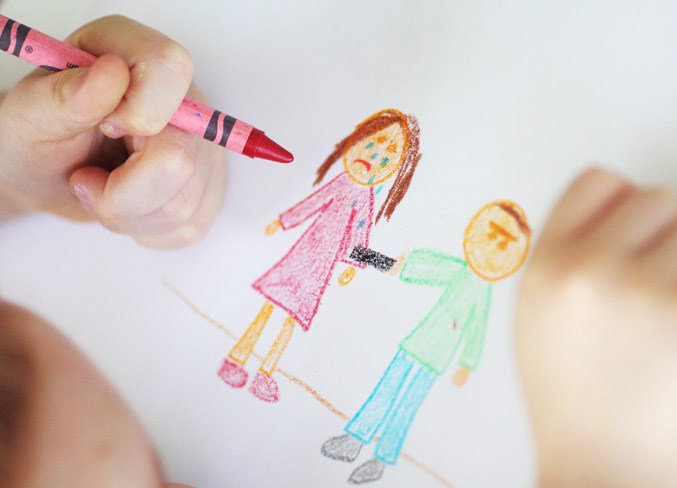Preventing domestic violence takes teamwork – no single organization can do it alone. That's the approach Sagesse, an organization committed to breaking the cycle of violence, has taken with its Provincial Collective Impact initiative. "Collective impact is the idea that we can make large-scale change around domestic violence when we work together as a community – making sure we have a common agenda, which is ending domestic violence," said Andrea Silvertsone, Sagesse executive director. The initiative is not intended to serve the client directly, she added, but is instead about gathering stories and examining thematic issues that prevent people from addressing the violence in their lives. "When I say client, that could be a victim, a perpetrator, it could be a friend or family member. And so, by gathering those experiences and understanding what those issues are, we can work together as a whole, entire system across the province to start to address them," Silverstone said. To help support this initiative, the Government of Alberta recently provided $140,000 to the Alberta-wide organization, which operates in 31 sites across the province. "The analogy I use is this – a lot of our work that we do, and it's important work...is we are catching people at the bottom of a waterfall as they fall over," Silverstone said. "Part of what collective impact is about is creating those gates at the top of the waterfall, so no one ever falls over the waterfall. That's this new bit of funding that we got – it's a project to try and figure out where to build those gates, how we build those gates and knowing we can only do it together, as a community across Alberta." According to Crystal Boys from Airdrie P.O.W.E.R. (Protecting Our Women with Emergency Resources), this approach to the issue "can do nothing but great things." "Domestic violence has to be stopped at every level and every angle," Boys said. "It's got to be stopped with children that have grown up with that, they have to learn that that's not OK. The abuser needs help and the survivors and victims also need help." Silverstone said Alberta has one of the highest rates of domestic violence in Canada and, according to Boys, the rates in Airdrie are "through the roof, they're staggering." Every four individuals will experience domestic violence in their lifetime, Silverstone said, but the impact of that abuse does not stop at the individual. "That means if one out of four is experiencing domestic violence, those people have whole ecosystems around them – they have friends, they have family members, they have children – which actually means there is a much higher rate of people that are experiencing domestic violence that also have trauma as a result of trying to support them," she said. Though Boys couldn't say why the rates of domestic violence are so high in Airdrie, she said the main demographic (the 35 to 39 age range, according to airdrie.ca) is the same main demographic for domestic violence, which could play a role. Silverstone said Alberta's boom-bust economy also likely impacts the province's high domestic violence rate. In the most recent economic downturn, Sagesse saw a 30 per cent spike in clients accessing its resources. She added natural disasters such as recent wildfires and flooding, which have led to many people being displaced, could play a role, as well. Perhaps one of the bigger reasons for the prevalence of domestic violence in society, Silverstone said, is its hidden nature – which she said often prevents people from intervening. "When you see someone who is experiencing poverty, people step up – front and centre – to help them, because they see it and it doesn't feel shameful," she said. "When someone is experiencing domestic violence, they don't talk about it. It feels shameful, they feel like they're a failure, or they are the abuser and that feels shameful, as well. It's really personal. So, we have a tendency, as a society, to not engage in the same way when we see it happening." The Collective Impact initiative is one way Sagesse is working to combat the hidden side of domestic violence. "This funding, in particular, is going to help us to allow to begin the conversation across the province, so that as a province, we can pull together and make sure we're addressing the most pressing issues around domestic violence," Silverstone said. Boys said one of the issues that needs to be addressed is the perception of what domestic violence is. "Domestic violence is physical, it's economical, it's emotional, it's mental, it's spiritual, it's cultural. It's any kind of abuse that is stopping a person from being a free human being, really," she said. "We have to stop asking women why they haven't left and why they stay – that is not a question, that is an accusation. Until people understand the psychological damage that domestic violence does, fear alone can hold somebody captive. So it's a very, very powerful tool." For more information, visit sagesse.org, and for information on Airdrie P.O.W.E.R., visit airdriepower.com If you or a loved one is experiencing domestic violence, there are resources available in Airdrie. North Rocky View Community Links has offices in Airdrie, Beiseker, Crossfield and Irricana. Call 1-866-945-3905 (toll free) or visit nrvcl.ab.ca for more information. Airdrie and District Victims Assistance Society (403-945-7290 or airdrievictimassistance.com) also offers domestic violence services. - with files from Jessi Gowan



